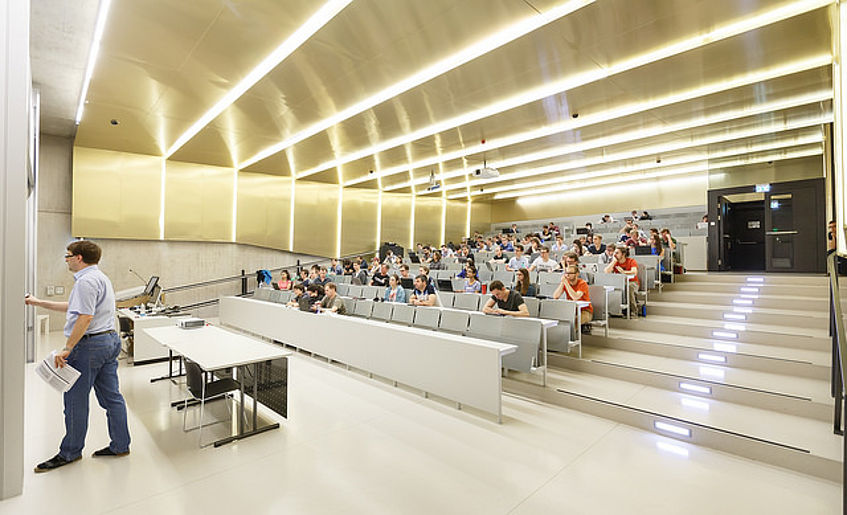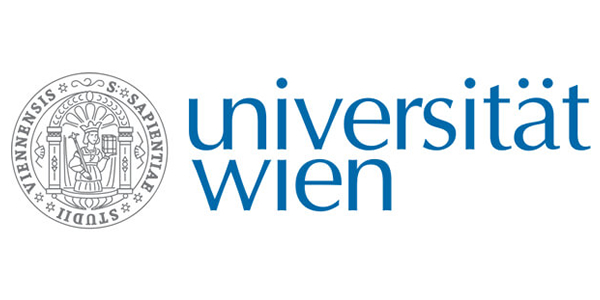Middle European interdisciplinary master programme in Cognitive Science
- Abschluss: Master of Science (M. Sc.)
- Umfang: 4 Semesters, 120 ECTS Punkte
- Studienart: Präsenzstudium, Vollzeit
- Bildungsfeld: Sprachen, Kultur & Geschichte
- Unterrichtssprache: Englisch
- Website: slw.univie.ac.at

What is cognition?
What is free will?
What is the role of our bodies and the environment in cognition?
How can I understand another person?
Can we simulate our thinking on computers and/or in robots?
Is there more to thinking and feelings than our neurons?
This is only a small selection of questions that are in the focus of cognitive science. Cognitive science is an emerging interdisciplinary effort to study cognitive phenomena on various levels. A broad field of disciplines including philosophy, artificial intelligence, neuroscience, linguistics, psychology, behavioural biology, anthropology, and others are collaborating to tackle these puzzling questions.
Study Overview
The Middle European interdisciplinary master programme in Cognitive Science (MEi:CogSci) is a joint master’s programme offered by the following institutions since 2006: University of Vienna (& Medical University of Vienna), Comenius University in Bratislava, Eötvös Loránd University in Budapest, University of Ljubljana, and University of Zagreb.
MEi:CogSci aims at educating students in the field of Cognitive Science by providing an environment for truly interdisciplinary study and research as well as a large number of areas for specialisation offered by the different partner institutions.
Being enrolled in the joint master’s programme, students acquire 30 ECTS at a partner university and are awarded a joint academic degree by the participating institutions.
The joint master’s programme MEi:CogSci enables students to acquire fundamental concepts in cognitive science, as well as training in state-of-the-art methodological and research skills. With the goal to study and understand phenomena of cognition, cognitive science attempts to bridge approaches of natural sciences and humanities, covering the whole range from perception, complex thinking processes, to motor behaviour, social cognition, and culture. Students develop expertise in a chosen area of interest, focusing on a cognitive phenomenon. An important feature of this programme is its interdisciplinary character manifested in the curricular architecture as well as in the didactical principles (e.g. working in interdisciplinary and intercultural teams, project orientation, research-orientation, etc.). It supports students in investigating and dealing with conceptual coherences and inconsistencies across disciplines, methods and terminologies by using innovative teaching/learning settings.
Due to the fact that each year only a small number of 25 highly qualified and motivated students are admitted to the programme, the teacher-student ratio is exceptional and creates an optimal study environment.
After Graduation
The programme provides graduates with the necessary theoretical/intellectual and empirical tools to pursue an academic career (PhD programme) in cognitive science or in one of the disciplines related to it. Apart from basic research, graduates in cognitive science increasingly find work in applied research. Depending on the direction of specialisation, prospective career fields include the IT-sector (interaction design, usability, Computer Supported Cooperative Work, knowledge management, cognitive technologies, AI applications, social media, etc.), education, and biomedical and clinical research, as well as economy. The generic skills (such as teamwork, ability to communicate, reflection and evaluation skills, ability to quickly learn and adapt) acquired by graduates are of use in a variety of careers in the private sector. Graduates of cognitive science are especially suited to work in highly interdisciplinary area, bringing experience in mediating between disciplines. These include the fields of natural sciences, humanities, IT and education (see above), as well as the areas of consulting, human resources, and science writing.
UNI-Profil
Universität Wien
Universitätsring 1, 1010 Wien
Telefon: 01 42770 Website: www.univie.ac.at
